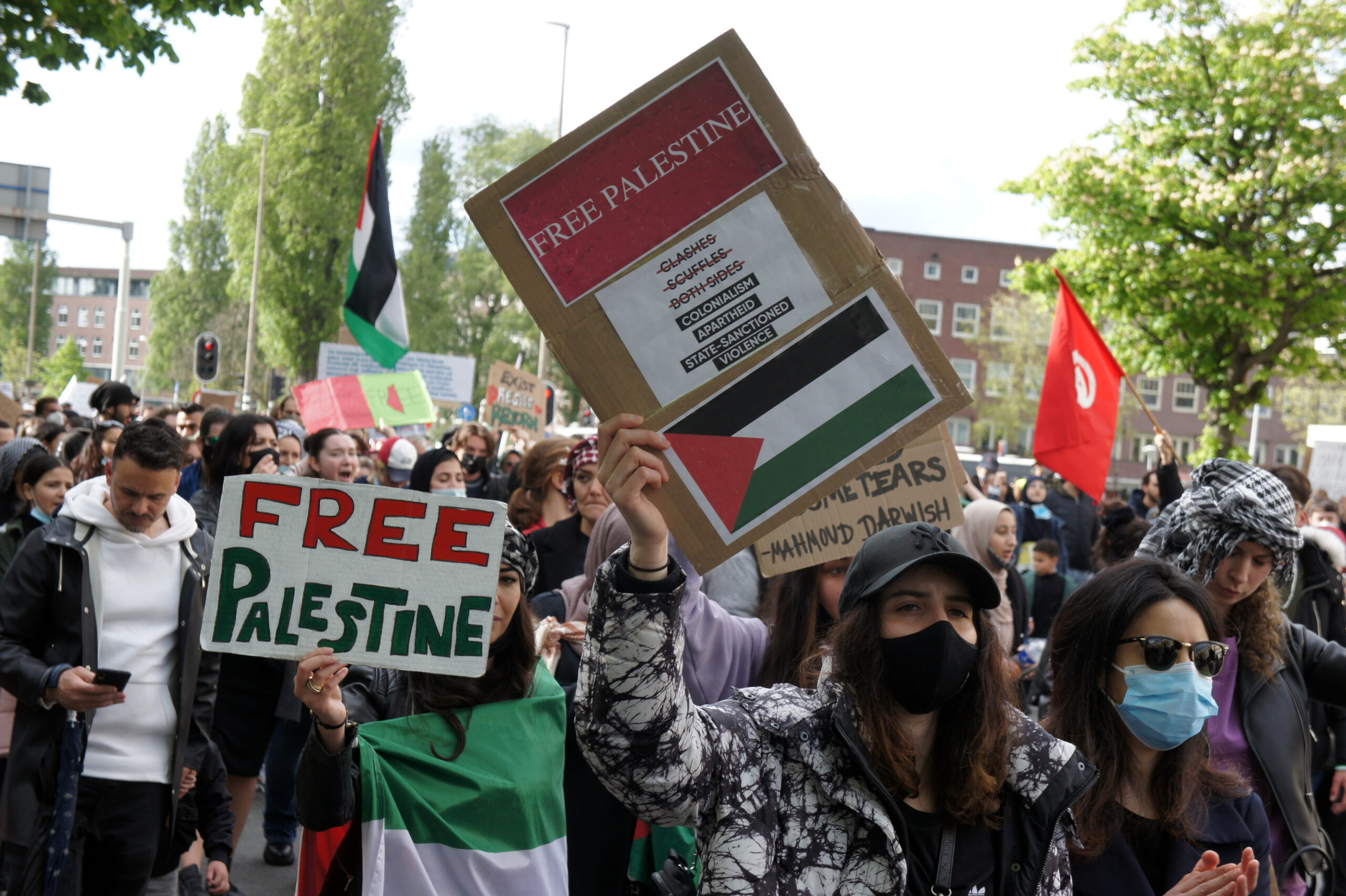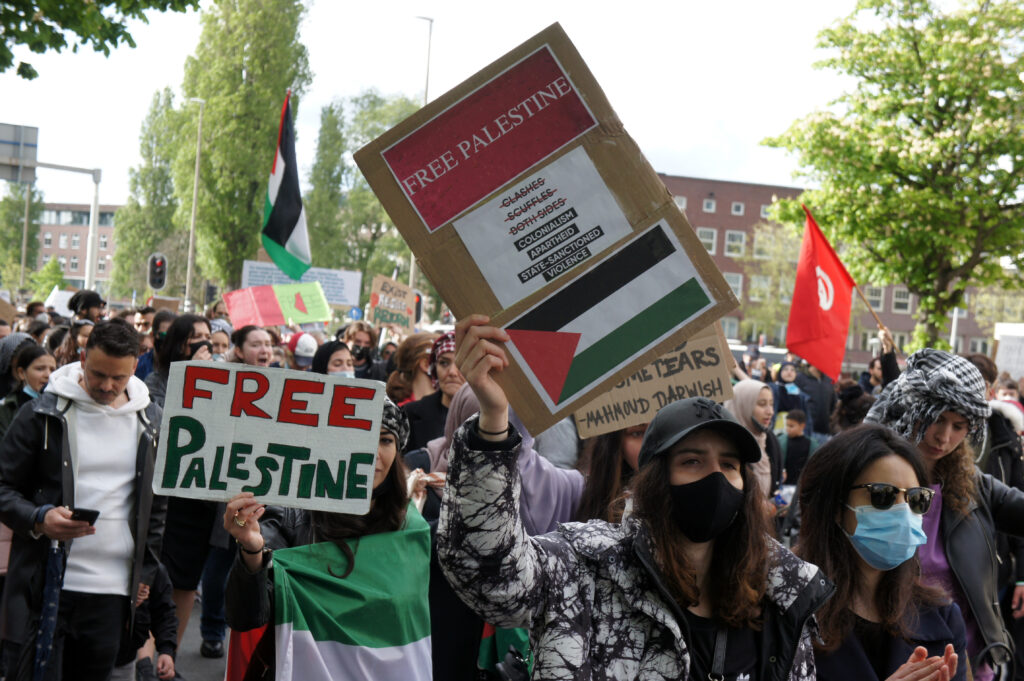Nick Krekelbergh
In recent months, more European countries have moved toward recognizing Palestine and increasing pressure on Israel to halt the genocide in Gaza. The Low Countries reflect this trend. Belgium decided to recognize Palestine as a state, though under certain conditions. In the Netherlands, the right-wing government collapsed after a more moderate coalition partner pushed for a tougher stance toward Israel. Yet even if Europe’s gradual shift can be read as a modest victory for Palestinian national liberation and peace, the reality is far less straightforward.
Belgium
At the beginning of September, the federal government of Belgium decided to recognize Palestine as a state — but only under strict conditions: the release of all Israeli hostages and the exclusion of Hamas from any role in Palestinian governance. Alongside this, the government announced sanctions against Israel, including a ban on products from settlements and restrictions on cooperation. The regional Flemish government followed the same line, adding its own measures: no further promotion of trade with companies active in the occupied territories, as well as additional humanitarian aid.
Within the political landscape, the social democrats and centrist parties (Vooruit, Les Engagés, CD&V) strongly supported sanctions and recognition, arguing that Belgium had to act more decisively. On the other side stood the right-wing Flemish nationalist N-VA and the francophone neoliberal MR, who opposed the move. They pushed for conditions and restrictions, citing diplomatic and economic risks. Both parties are rooted in a more pro-Zionist tradition: they regularly stress Israel’s security concerns, are wary of premature recognition of Palestine, and resist what they dismiss as merely “symbolic” anti-Israel measures.
It’s hard to find a better example of a typical “Belgian compromise”. Confronted with a choice — recognize Palestine or shield Israel — the government did what it often has done: a little of both, and neither fully. Half the coalition (Vooruit, Les Engagés, CD&V) was already waving the Palestinian flag, while MR and N-VA nervously warned against offending Israel. The outcome? The Belgian state will recognize Palestine, but only if Hamas vanishes and all hostages are freed. In other words: recognition is deferred indefinitely, so no one really has to worry about losing face. The region of Flanders just slipped in a footnote of their own: some extra humanitarian aid, and no more export promotion for companies trading with the settlements in occupied territories.
In short: a textbook Belgian compromise. It gives the appearance of bold decision-making, but in reality it’s just another exercise in deciding nothing while keeping everyone smiling.
The Netherlands
However, this typical Belgian compromise allowed the country to avoid the government crisis that unfolded in the Netherlands. Here, the political landscape has long been characterized by a strong pro-Zionist orientation, particularly among its right-wing parties. Until June 3, the country was governed by a coalition that included the PVV, the extreme right-wing populist party led by Geert Wilders. Wilders has for decades been known as an outspoken Zionist and fierce critic of Islam. However, the PVV eventually withdrew from the coalition, arguing that it could not enforce a sufficiently strict migration policy. This departure left the government in caretaker status, with new elections already anticipated.
The governing coalition also included the VVD, a neoliberal right-wing party, and the BBB, a right-wing populist farmers’ party. More recently, the NSC, led by Pieter Omtzigt, also announced its withdrawal. The NSC stands out as a Christian Democratic populist party, arguably the most centrist and Christian humanist force within the coalition. Notably, the NSC favored adopting a stricter policy toward Israel, but its position was blocked by its right-wing partners. With its departure, the cabinet has effectively become dysfunctional, making fresh elections inevitable.
Looking ahead, there is a strong likelihood that the PVV will perform very well in the coming elections, which bodes ill for those seeking a more balanced Middle East policy. Historically, public opinion in the Netherlands has been considerably more pro-Zionist than Belgium. The difference is readily apparent when comparing Dutch news coverage with that of Flemish or Walloon broadcasters. This orientation can be traced to a longstanding tradition of Christian Zionism, rooted in certain Protestant movements, which continues to shape both public opinion and party strategies – even if these voters are not that numerous at all. Right-wing and Christian parties, in particular, have an incentive to appeal to this constituency.
That said, there are signs that public opinion in the Netherlands has begun to shift in recent years in favour of the Palestinian cause. Growing international pressure within Europe has also encouraged centrist parties to distance themselves somewhat from the traditionally uncritical pro-Israel stance. Still, the events of recent months make clear that altering Dutch policy will not be straightforward. Parties with large electoral support bases remain able to obstruct or delay any significant change in approach.
The upcoming elections will therefore be crucial in determining whether the Netherlands maintains its traditionally Zionist orientation, or whether the gradual shifts in public opinion will translate into concrete political change. For now, the outlook suggests continuity rather than transformation.



